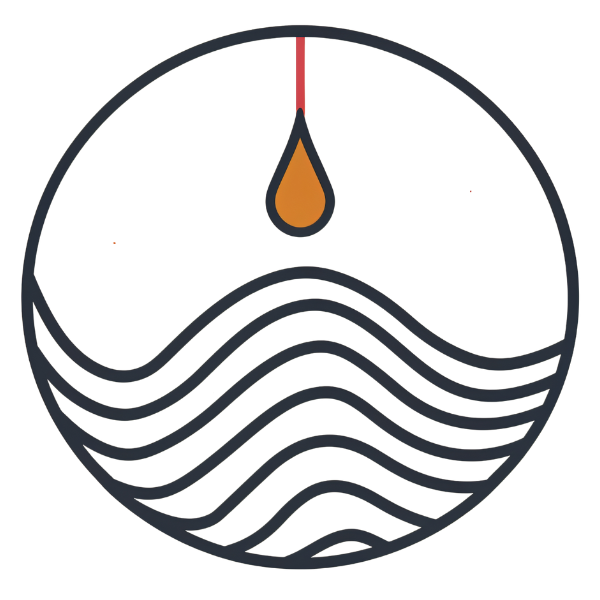
Why Sufficient Water is Important When Using Creatine
Share
Creatine is one of the most researched and effective supplements on the market. It is used by athletes worldwide to improve strength and performance. However, what is often overlooked is the crucial importance of hydration when taking creatine. In this comprehensive article, we explore why drinking enough water is essential when taking creatine, how it contributes to your performance, and the risks of not staying properly hydrated. We also delve into the role of magnesium and answer frequently asked questions on these topics.
What is Creatine and How Does It Work?
Creatine is a natural compound found in muscle cells. It plays a key role in the production of adenosine triphosphate (ATP), the body’s primary energy source during short, explosive movements like weightlifting and sprinting. By supplementing with creatine, you increase the amount of creatine in your muscles, which can lead to increased ATP production, improved performance, and faster muscle growth.
| 💪 | Creatine Benefits |
|---|---|
| 🏋️♂️ | Increased muscle strength |
| 🚀 | Improved performance |
| 🧠 | Possible cognitive benefits |
| 💥 | Faster muscle growth |
How Much Creatine Should You Take?
The standard dose of creatine is usually 3 to 5 grams per day. Some people choose to do a loading phase where they take 20 grams per day for the first week, divided into four doses, to quickly increase creatine levels in their muscles. Then they switch to a maintenance dose of 3 to 5 grams per day.
What Are the Benefits of Creatine?
Creatine has been shown to be effective in increasing muscle mass, strength, and performance during short, intense exercise. It can also aid in recovery after exercise and may even provide cognitive benefits. A study published on PubMed shows that creatine supplements can significantly improve physical performance during repeated short bursts of intense physical activity.
Why is Hydration So Important When Using Creatine?
Hydration plays a vital role in how effectively creatine works in your body. Without adequate water, you won’t be able to reap the full benefits of creatine, and you’ll be at risk for side effects such as dehydration and muscle cramps.
| 💧 | Why Hydration is Important When Using Creatine |
|---|---|
| 🚰 | Prevents dehydration |
| 🦵 | Reduces muscle cramps |
| ⚡ | Improves muscle performance |
| 🩺 | Supports kidney health |
1. Creatine attracts water to your muscles
Creatine works by drawing water into your muscle cells, which leads to an increase in cell volume and improved muscle performance. However, this increased water content in your muscles can lead to a decrease in total body water, which can cause dehydration if you don’t drink enough. According to a PubMed study, taking creatine can increase water content in your muscle cells, highlighting why it’s important to increase your water intake.
2. Dehydration and Muscle Cramps
Dehydration is one of the biggest risks of using creatine, especially if you are training intensely and are not hydrated. Dehydration can lead to decreased performance, muscle cramps, and in severe cases, heat exhaustion or heat stroke. Another study published on PubMed confirms that adequate hydration is essential for maintaining electrolyte balance and preventing muscle cramps during heavy exercise.
3. Creatine and Kidney Health
Although creatine is safe for healthy individuals, taking it in combination with inadequate water intake can place additional strain on the kidneys. The kidneys play an important role in filtering waste products from your body. Dehydration can disrupt these processes and lead to kidney problems. Research found on PubMed suggests that proper hydration is essential to reducing the burden on the kidneys while taking creatine.
How Much Water Should You Drink When Taking Creatine?
One of the most frequently asked questions is how much water exactly should you drink when taking creatine. There is no standard answer, as water needs vary from person to person and depend on factors such as body weight, climate and training intensity. However, a general guideline is to drink at least 3 litres of water per day. This will help your body to compensate for the increased water needs of creatine use and keep you hydrated, which is essential for both your performance and your health.
Frequently Asked Questions About Creatine and Hydration
1. Should I drink more water when taking creatine?
Yes, it is important to increase your water intake when using creatine to prevent dehydration and possible side effects. Because creatine draws water to your muscles, you need more water to stay hydrated.
2. Can I drink too much water while taking creatine?
While hydration is important, drinking too much water can lead to water intoxication, also known as hyponatremia. This occurs when the sodium level in your blood drops too low due to excessive water intake. It is important to find a balance and not drink an extreme amount of water in a short period of time.
3. Does creatine affect my electrolyte balance?
Yes, creatine can affect your electrolyte balance by drawing water to your muscles. This underscores the importance of hydration and replenishing electrolytes as needed. A well-balanced diet and drinking electrolyte-rich beverages can help keep your electrolytes balanced during intense training sessions.
4. How can I recognize dehydration during creatine use?
Symptoms of dehydration include thirst, dry mouth, dark urine, fatigue, dizziness, and less frequent urination. It is important to pay attention to these signs, especially during intense workouts. Make sure to drink regularly, even if you are not thirsty.
| 😓 | Symptoms of Dehydration |
|---|---|
| 💧 | Dark urine |
| 😵 | Dizziness |
| 😴 | Fatigue |
| 👅 | Dry mouth |
Discover the Surprising Benefits of Magnesium
In addition to creatine, magnesium plays a crucial role in supporting your muscles and overall health. Magnesium is involved in over 300 biochemical reactions in the body, including energy production, muscle and nerve function, and protein synthesis. For athletes, optimizing magnesium intake can help improve muscle recovery, reduce cramping, and improve performance.
| 🌿 | Benefits of Magnesium |
|---|---|
| 🦵 | Reduces muscle cramps |
| 🛌 | Promotes muscle relaxation |
| ⚡ | Supports energy production |
| 🔋 | Accelerates recovery |
How Magnesium Helps Muscle Recovery
Magnesium supports muscle relaxation after exercise and can help prevent cramps. This is especially important if you are taking creatine, as dehydration and electrolyte loss can contribute to muscle cramps. A PubMed study highlights the importance of magnesium in supporting muscle function and reducing the risk of muscle cramps during exercise.
How Much Magnesium Do You Need?
The recommended daily allowance (RDA) for magnesium is approximately 400-420 mg per day for adult men and 310-320 mg per day for adult women. This can be obtained from foods such as green leafy vegetables, nuts, seeds, and whole grains. For athletes who train intensively, a magnesium supplement may be helpful to meet their increased needs.
How Does Magnesium Enhance the Effects of Creatine?
Magnesium can help optimize the effects of creatine by contributing to better muscle relaxation and energy production. When you combine creatine and magnesium with adequate water intake, you create an optimal environment for muscle growth, strength gains, and recovery. A combination of these supplements, supported by proper hydration, can help you achieve your athletic goals faster and more effectively.
Conclusion
There are many benefits to taking creatine for athletes, but to get the most out of this supplement, it is essential to drink enough water. Hydration helps to maximize performance, prevent muscle cramps, and promote overall health. Additionally, magnesium can be a valuable supplement to support muscle recovery and relaxation.
By combining creatine use with adequate water intake and a good magnesium balance, you can take your workouts to the next level and reap the full benefits of this supplement. Remember to listen to your body and always drink enough, especially during intense workouts. This will ensure that you not only get stronger and fitter, but also stay healthy and safe.
| 💧 | Tips for Sufficient Water Intake |
|---|---|
| ⏰ | Drink water regularly throughout the day |
| 🥤 | Keep a water bottle handy |
| 🍋 | Add lemon for flavor |
| 📱 | Set reminders on your phone |
Discover your Ideal Product with Our Health Test
Want to know which supplements best suit your specific health needs? Take our health test! This test will help you find the ideal product that perfectly suits your lifestyle and goals. Visit our health test and receive personalized advice.
External Links to Relevant Studies:
- Creatine Supplements and Physical Performance
- The effect of creatine on muscle water retention
- Dehydration and electrolyte imbalance during physical exertion
- Creatine Use and Kidney Health
- The Role of Magnesium in Muscle Cramps
With this information, you will be well equipped to use creatine safely and effectively while optimizing your hydration and magnesium intake for maximum results.
